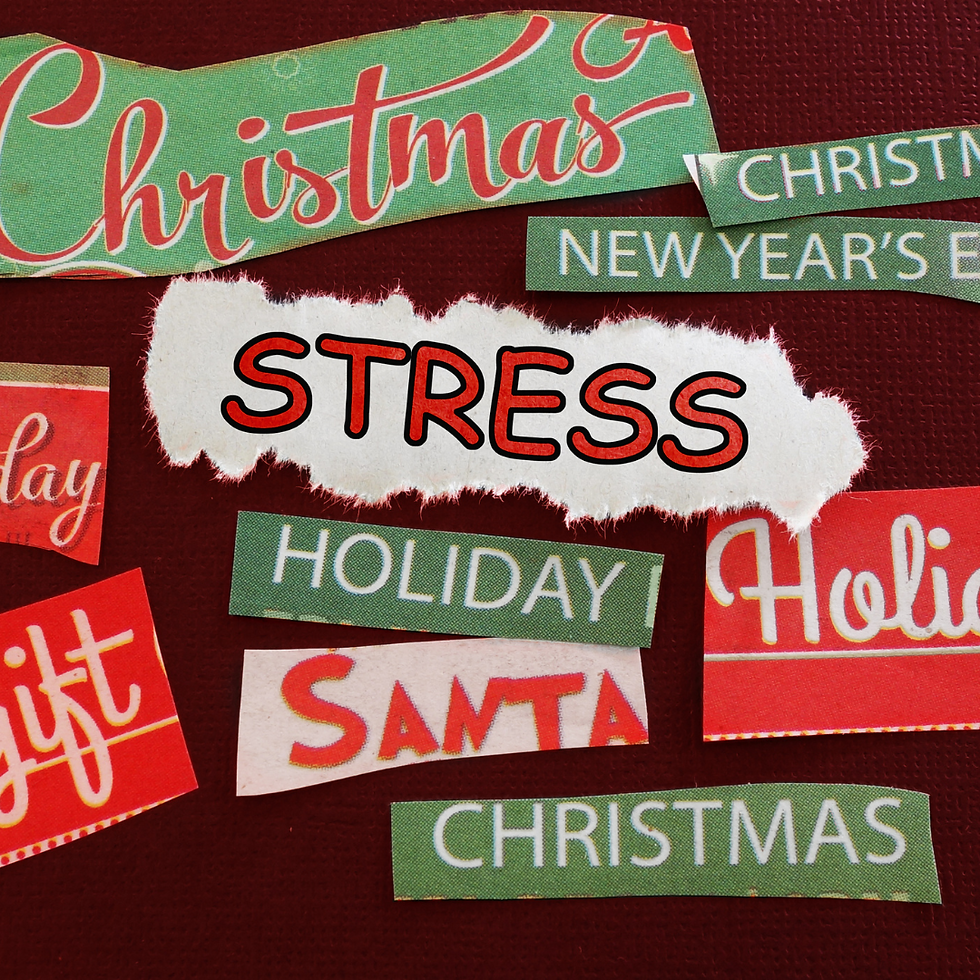Preventing Relapse During the Holidays: Guidance for Addiction Counselors
- Dr. Diane Sherman

- Nov 8, 2024
- 3 min read
Updated: Nov 9, 2024

The holidays are a time of joy and celebration, but for individuals in early recovery, they can also be a time of heightened stress, anxiety, and temptation. As an addiction counselor, it’s essential to provide your clients with the right tools and strategies to navigate this challenging season and prevent relapse.
Why Are the Holidays So Risky for Relapse?

The holidays can be overwhelming for people in early recovery due to several factors:
Increased stress from family gatherings, financial pressures, and social obligations.
Emotional triggers associated with past holiday experiences, which may have included substance use.
Availability of alcohol and drugs at social events and celebrations.
Feelings of loneliness or isolation, especially for those separated from loved ones or those who are still healing relationships.
Statistics reveal that the holiday season presents a higher risk of relapse for individuals in recovery. Studies show that relapse rates increase by as much as 150% during the holidays, with alcohol-related incidents spiking between Thanksgiving and New Year’s Day. This period can be especially difficult for those in the early stages of recovery, where relapse rates can already range from 40-60% within the first year.
Strategies for Counselors to Help Clients Prevent Relapse
Encourage Early Planning. Help your clients develop a plan for navigating holiday events, identifying potential triggers, and deciding how they will cope with difficult situations. This can include creating an exit strategy for gatherings where they feel uncomfortable, or bringing a sober companion to events.
Stress the Importance of Sober Support. Encourage clients to attend extra meetings or connect more frequently with their support network during this time. They should have access to accountability partners or sponsors who can provide support when needed.
Promote Self-Care and Boundaries. Remind clients that it’s okay to say “no” to gatherings
or situations that feel unsafe for their sobriety. Practicing self-care through activities like exercise, meditation, or engaging in hobbies can help reduce stress and promote emotional balance.
Provide Education on Coping Skills. Equip clients with practical coping mechanisms, such as deep breathing, mindfulness, or journaling, to manage emotional triggers. Role-playing common holiday scenarios in counseling sessions can help them feel prepared.
Encourage Sober Celebrations. Suggest alternatives to traditional holiday gatherings by encouraging clients to host or attend sober celebrations. There are many sober holiday events or virtual gatherings that provide a fun, safe environment.
Discuss Relapse Warning Signs. Educate clients on the early signs of relapse, including increased stress, isolation, or skipping meetings. Encourage them to reach out for help if they notice these signs.
Offer Extra Support During the Season. As a counselor, make yourself more available during the holiday season. Offering additional sessions or check-ins can provide clients with the reassurance and support they need to stay on track.

As the holidays approach, it's crucial to remind your clients that sobriety is a priority, and with the right tools, they can successfully navigate this season. By planning ahead, seeking support, and staying mindful of their emotions, those in early recovery can enjoy the holidays without jeopardizing their progress.
By offering practical guidance and compassionate support, you can help your clients not only survive the holidays but thrive in their recovery journey.
If you’re interested in learning more about relapse prevention or enhancing your counseling skills, check out our courses at ACTS Consulting. We're here to support addiction professionals with the knowledge and tools they need to make a lasting impact.


Comments